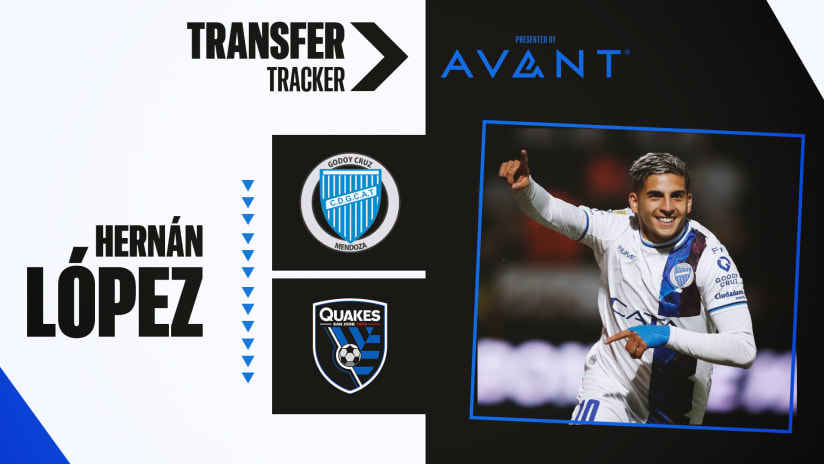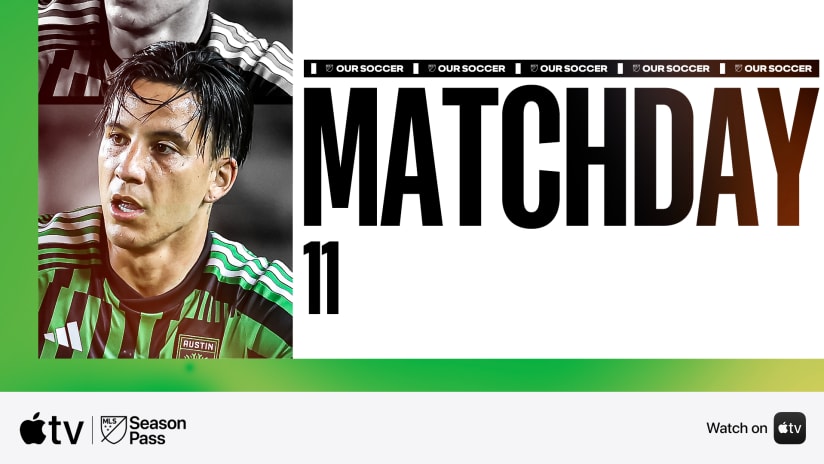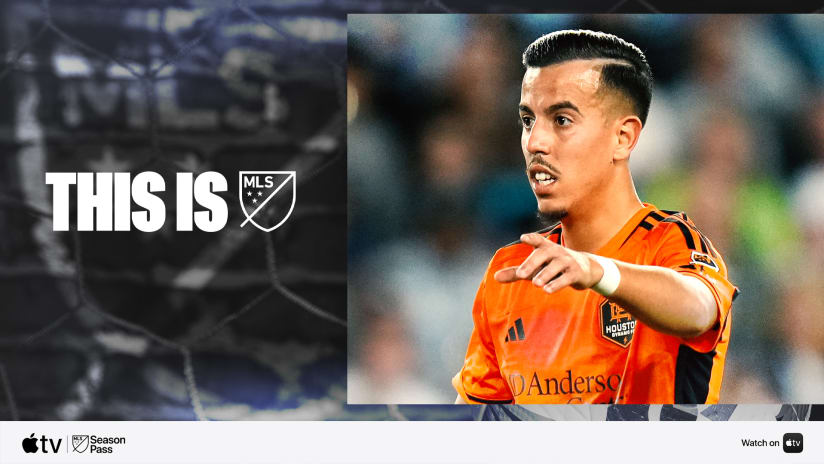How would you build the perfect MLS roster?
It's a question that fans, players, coaches and front office executives ask themselves every day. With all the different mechanisms with which MLS teams can bring in players the possibilities are endless.
If you are reading this, you probably will not have to answer that question yourselves, but students at Columbia University and Harvard University did answer that in the only way they know how – through the use of analytics.
The assignment
Four teams of students, three from Columbia and one from Harvard, received the case on how to build the optimal 20-man MLS roster following most of the roster rules that MLS teams have to deal with on a daily basis. It was all part of Columbia's Masters in Sports Management major and specifically in their course on Analytics in Global Sport. The University partnered with OptaPro, who deals directly with MLS teams, last year to put together the course, and this competition is one of many benefits of taking it.
"Our partnership with Columbia University is part of our continuing efforts to support and grow the analytics community. This case competition is a terrific end point for students to apply their learning during the term," said Angus McNab, VP of Content in North America for the Opta/Peform Group. "The importance of having our partner clubs in Major League Soccer attend and support the program cannot be understated as the earlier lectures featuring Devin Pleuler from Toronto FC and Padraig Smith from Colorado Rapids were critical to giving students an insight into the realities of using analytics in a club environment."
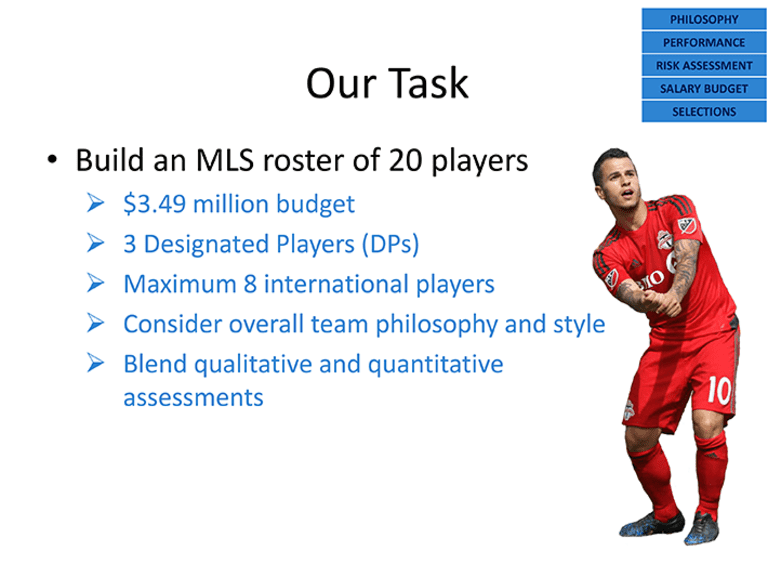
A slide from a student presentation outlining their task.
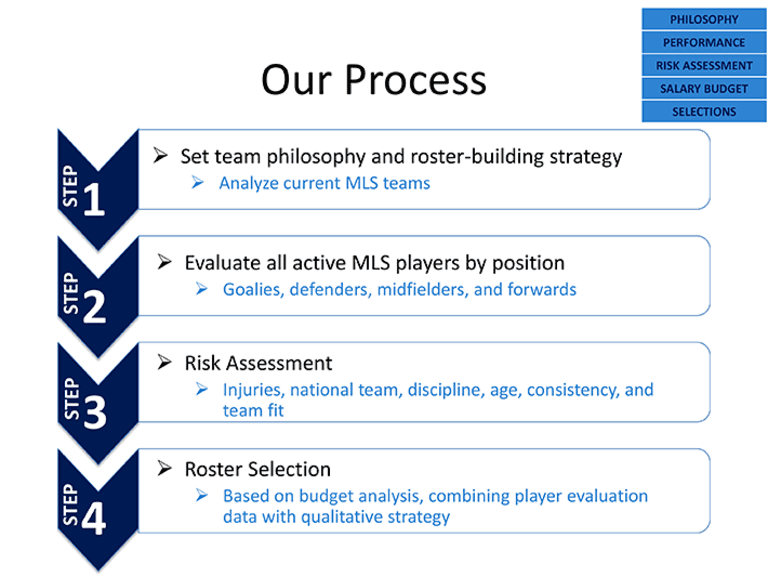
A slide from a student presentation explaining their evaluation process.
Using analytics to support decisions
All of the teams considered the style of play their team should employ, with almost all of them noting that possession-based teams fare no better in MLS than teams who do not value possession. Most teams also favored young players because of their ability to grow and players who did not take up too much salary cap space, using salaries published by the MLS Players Union. All of the teams were given a week to complete the case.
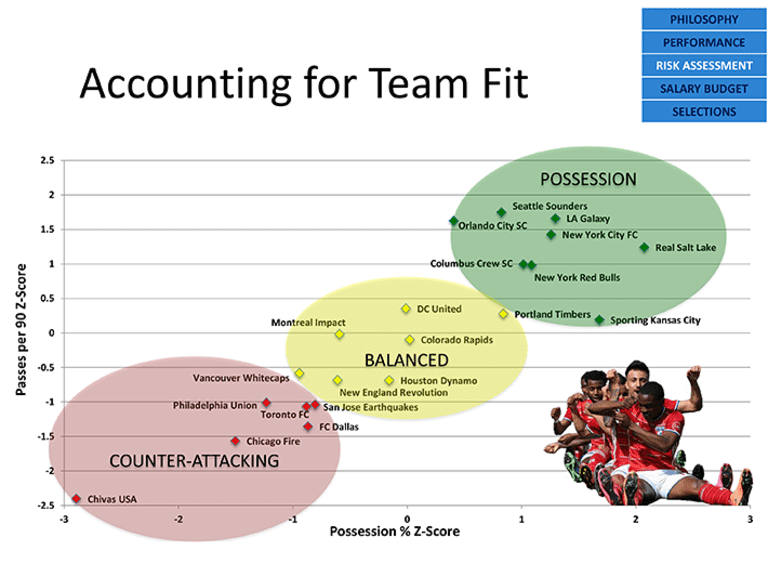
A slide from a Columbia University team's presentation illustrating styles of play for each MLS team.
The winning presentation
The winning team, from Columbia, spent around $4.6 million on their final 20-man roster, after going through all of their metrics. Their backline is anchored by 2015 Defender of the Year Laurent Ciman, with stars Lee Nguyen and Fabian Castillo also included. Some surprising names to be selected were Toronto FC center back Josh Williams and NYCFC cult hero Kwadwo Poku.
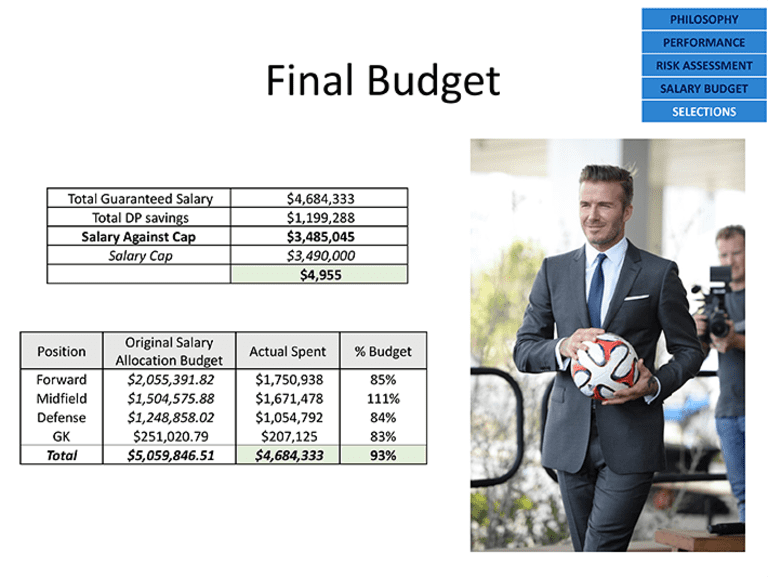
A slide from from the winning team's (Columbia University) presentation explaining their final budget.
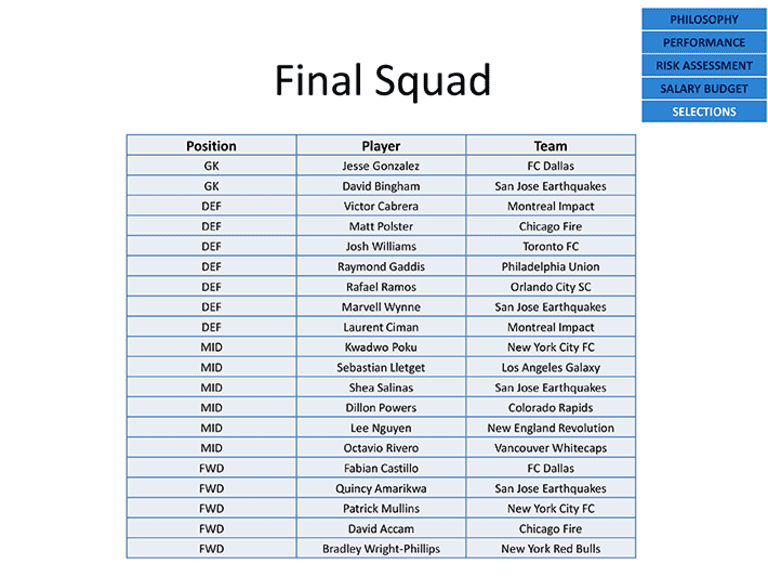
The winning team's final roster.
Two of the five judges in the competition were the Director of Player Recruitment for NYCFC David Lee and the Head of Technical Recruitment and Analysis for Atlanta United FC Lucy Rushton. Rushton was particularly excited by the quality of the analysis being done be the teams in the competition.
"I was extremely impressed with the cases put forwards by each of the groups, particularly given the relatively short amount of preparation time. Their use of the Opta data and the depth of analysis was fantastic and each group used it to well to give valid direction and rationale to their roster selections," said Rushton. "The consideration of other factors which influence the recruitment process was equally as impressive and as a result well rounded cases were presented. Overall the competition really did highlight the powerful impact and benefit that statistical analysis can have on the recruitment process."






